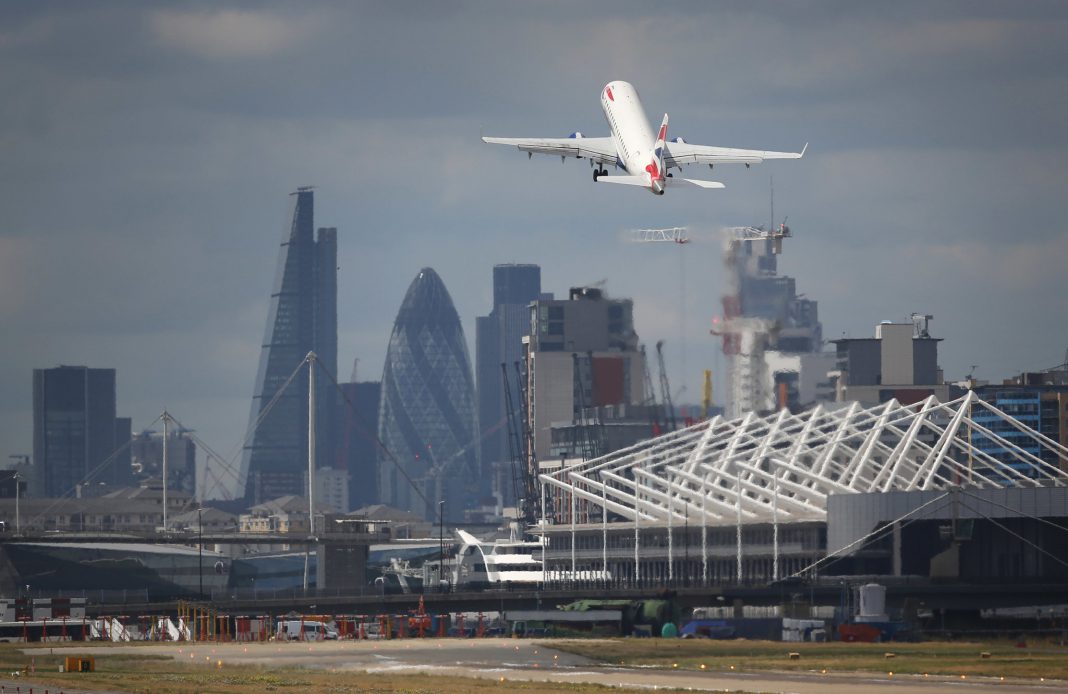London City Airport has outlined plans to become the first net zero airport in London by the end of the decade.
The airport has published a new sustainability roadmap, setting out the steps it will be taking between now and 2030 to achieve its goal. These include measures to phase out gas for heating its buildings, ensuring all airport vehicles become electric, and plans to become a zero waste and zero single use plastics business.
In addition, on scope 3 emissions – indirect emissions that occur in a company’s value chain – London City aspires to be the most sustainably connected airport in the UK, with 80 per cent of all journeys to and from the airport to be made by sustainable transport modes by 2030. In 2019, London City had 73 per cent of passengers accessing the airport by public and sustainable transport, the highest percentage of any UK airport.
Recent polling commissioned by London City Airport, conducted by YouGov, found that passengers consider sustainability to beone of the top issues in aviation. Data also shows that most respondents expect the use of Sustainable Aviation fuels to become available in the UK within the next ten years. This follows the Transport Secretary pledging to work with industry to deliver the world’s first transatlantic flight fuelled purely by Sustainable Aviation fuels by the end of next year.
Similarly, most respondents anticipate that zero emission flights would be rolled out within the next 20 years. This comes ahead of an upcoming industry report, which London City is part of, that outlines how zero emission flights can be introduced across the UK’s domestic aviation market.
The roadmap outlines the significant progress that has already been made and puts sustainability at the forefront of the airport’s agenda, with a clear focus on reducing carbon emissions; enhancing the natural environment; and helping the airport’s communities grow and prosper.
As part of this, LCY aims to be one of the first airports in the UK to facilitate a zero emission flights and is working closely with industry partners, and UK Government, to understand how the airport can facilitate low to zero emission flight as technology comes on stream.
The roadmap also sets out how the airport will continue to invest in its local communities and help young people achieve their potential. LCY has plans to build an onsite skills & training center and an ambition for all on-site partners to pay the London Living Wage by 2026.
London City Airport Chief Executive Officer, Robert Sinclair, said: “As we continue to recover from the impact of the pandemic, it is imperative that we rebuild in the right way.
“We hope all of our partners and stakeholders will welcome our ambition, not just to decarbonize, but to play a meaningful role locally, right across the ESG agenda.
“Given our size, location and the nature of our route network and operation, we are ideally placed to help shape the next phase of aviation innovation in London, establishing it as a global leader of the net zero economy, supporting innovation, research and development and creating jobs for the amazing young people of this city.”


